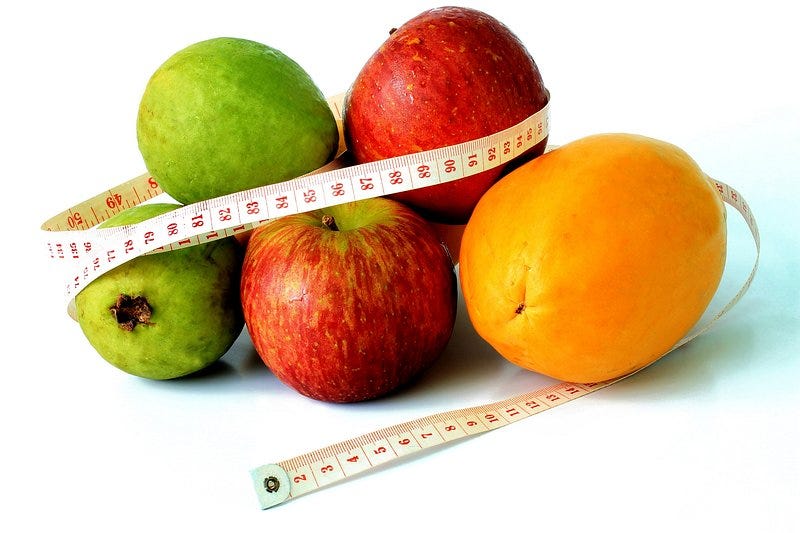
How Long Does It Take to Lose Weight?
Weight loss can feel like an overwhelming journey. With so much conflicting information online, knowing where to start or how long it might take is complex. In this blog, we’ll provide expert insights into the factors that affect weight loss, give practical tips on approaching your journey, and help you understand the most sustainable path to a healthier you.
But that’s not all—we also want to introduce you to our agency’s services. Not only do we write in-depth blogs like this one, but we also specialize in website development and SEO (Search Engine Optimisation). We provide complete solutions to help your business grow online and increase your digital footprint.
Understanding How Long It Takes to Lose Weight

There are many different opinions on how long it takes to lose Weight, but the truth is that it depends on various factors such as age, gender, metabolism, and how well you stick to your plan. The general recommendation is to aim for 1 to 2 pounds per week for a safe and sustainable weight loss process. However, the rate at which you lose Weight may differ depending on several key factors.
Key Factors That Affect How Long Does It Take to Lose Weight
1. Calorie Deficit
The most crucial factor in weight loss is a calorie deficit—that is, consuming fewer calories than you burn. This is typically achieved by eating fewer calories and increasing physical activity. A daily deficit of about 500 to 750 calories can help you lose 1-1.5 pounds per week, which is considered healthy.
2. Age and Metabolism
Your age plays a significant role in how quickly you lose Weight. As we get older, our metabolism naturally slows down. This can make weight loss more challenging, especially for individuals over 40. However, it is still possible to lose Weight effectively with the right combination of diet and exercise.
3. Gender
Men and women tend to lose Weight at different rates. Studies have shown that men generally have a higher Basal Metabolic Rate (BMR) due to more muscle mass, which means they burn more calories at rest. This could contribute to a faster weight loss rate in men than women, although individual results vary.
4. Physical Activity Level
The more physically active you are, the quicker your body will burn calories, accelerating weight loss. Regular exercise, such as cardio and strength training, can help increase your calorie burn, helping you reach your weight loss goals faster.
5. Diet Choices
What you eat matters just as much as how much you eat. Opting for a well-balanced diet prioritizing whole foods like fruits, vegetables, lean proteins, and whole grains is essential. Limiting processed foods, added sugars, and high-fat items can also help speed up weight loss by reducing unnecessary calorie intake.
6. Starting Weight
People who are overweight or obese typically lose Weight faster in the beginning of their weight loss journey. This is because the body has more stored energy to burn. On the other hand, individuals with a normal weight may find it takes longer to lose a few pounds.
7. Sleep and Stress
Sleep and stress levels are often overlooked in the weight loss process. Lack of sleep can interfere with hunger hormones, leading to increased appetite and cravings. Chronic stress can increase cortisol levels, making weight loss more difficult, especially around the belly area.

Setting Realistic Weight Loss Goals
While rapid weight loss may sound appealing, experts recommend losing 1 to 2 pounds weekly. This slow, steady approach not only ensures that the Weight stays off but also helps preserve muscle mass and reduces the risk of nutrient deficiencies.
A safe target is to lose 5% to 10% of your starting body weight in the first 6 months. For example, if you weigh 200 pounds, a goal of losing 10 to 20 pounds in 6 months is realistic.
Best Diets for Weight Loss
There’s no “one-size-fits-all” approach to weight loss diets. However, there are common principles that apply to most successful diet plans:
- Calorie Control: Whether you’re following a low-carb, low-fat, or Mediterranean diet, the key is to ensure you’re in a calorie deficit.
- Balanced Nutrition: A diet rich in fruits, vegetables, lean proteins, and whole grains will help you stay full while providing necessary nutrients.
- Sustainability: Choose a diet plan that fits your lifestyle and is long-term sustainable. Extreme diets are often hard to maintain and may lead to quick Weight regain.
The Importance of Regular Exercise
Exercise is an essential part of any weight loss plan. It helps burn calories and maintain lean muscle mass. Strength training can increase muscle mass, which boosts metabolism, while cardio exercises like walking, running, or swimming can help you burn calories more quickly.
Aim for at least 150 minutes of moderate exercise per week, including brisk walking, or 75 minutes of vigorous exercise, such as running or cycling.
FAQ: How Long Does It Take to Lose Weight
- How much weight can I realistically lose in a month?
Realistically, most people can lose 4 to 8 pounds (1.8 to 3.6 kg) per month with a healthy diet and regular exercise. - Is rapid weight loss safe for the body?
Rapid weight loss is usually not safe and may lead to muscle loss, nutritional deficiencies, and other health issues. - How long does it take to start seeing results from weight loss?
Many people begin to notice physical changes within 2 to 4 weeks of consistent dieting and exercise. - Does age affect how fast I can lose weight?
Yes, metabolism slows down with age, so older adults may lose weight more slowly than younger individuals. - Why am I not losing weight even after exercising regularly?
Weight loss can stall due to hidden calories, hormonal imbalances, muscle gain, or not being in a calorie deficit. - Can I lose weight without going to the gym?
Yes, weight loss is mainly about being in a calorie deficit, which can be achieved through diet and daily activity without the gym. - How long does it take to lose belly fat specifically?
Spot reduction isn’t possible, but with consistent full-body fat loss, you may start noticing belly fat reduction in 6 to 12 weeks. - Is losing 10 pounds in a week healthy?
No, losing 10 pounds in a week is considered unhealthy and often results in water or muscle loss rather than fat. - Do weight loss timelines vary by gender?
Yes, men often lose weight faster due to higher muscle mass and metabolic rate compared to women. - How important is sleep in the weight loss process?
Sleep is crucial—lack of sleep can increase hunger hormones and slow down metabolism, making weight loss harder.







